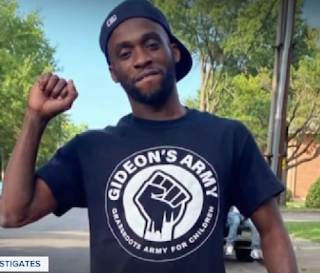by Rod Williams, August 5, 2023- I love polls, but then I am a political junky and maybe I am not normal. I like to know what people think. I trust polls. Now, when I say that I trust polls I must qualify that. I don't trust all polls.
There are push-pull polls designed to get a certain result. They are not really polls and are instead telemarketing techniques designed to get a certain result. These polls ask leading questions that push the person being polled to give a certain answer. Some political campaigns use this technique. The pollster may ask the polled person if they are aware that candidate X took such and such position on an issue. Then they may ask if knowing candidate X took that position are they more are less likely to vote for that candidate. Then they ask, in the upcoming election, for whom are you voting.
This technique also often involves selective facts and relies on people not knowing how policy is made. A Congressman may vote for an amendment to a defense appropriation bill to ban transexual surgery for enlisted people. Assume the amendment to ban transsexual surgery fails. Then when the Defense appropriation comes to a vote assume the Congressman votes for the bill. His opponent may claim Congressman X voted to fund transexual surgery. In truth, the only way he could vote not to fund it was to not fund any of our national defense needs. This technique is used by people of all political persuasions to attack their opponents.
There are also polls that are designed to get a specific answer based who is selected to participate in the poll. Climate change skepticism has been spread by polls of "scientist" who question if man-made climate change is real. These polls of scientist have been around for many years, but less so in recent years. When a poll says it polled "scientist," one needs to question who are these scientists? Are they relevant scientist or are they TV weathermen known as "climatologist" and are they chiropractors, or maybe they are legitimate scientist but in a totally unrelated field.
When one's on side is losing in a campaign, supporters will often say, "well, no one ever polled me." That does not make a poll illegitimate. Polls use scientific sampling and if done right they are pretty accurate. It seems to be a go-to pollical position, that when the polls do not give you the answer you desire, to question the validity of the poll.
Sometimes polls do miss the mark. In the run up to the 2020 election, quite a few polls showed Joe Biden with a significant lead, both nationally and in important swing states. While Biden did win, it was closer than polls showed it would be. One explanation for this is that Trump supporters are more protective of their privacy than Democrats and less trusting of pollsters. Professional pollsters learn from this and adjust and makes allowances for this next time.
Some critics of polls will argue that polls underrepresent certain people because certain people are less likely to answer calls from people they don't know, or certain voters are older and don't respond to text messages. Sometime people may argue that college graduates tend to respond to polls more than noncollege graduates so the polls are over representative of college graduates. If that is found to be true pollsters make adjustments for that. Good polling techniques take these issues into account.
Sometime polling is not very informative and is open to interpretation. Take the question, are we headed in the wrong direction or the right direction on issue X? Say the issue is crime; some could think we need more police to combat crime, and others could think we need more poverty programs and violence interveners. Both think we are headed in the wrong direction but have vastly different solutions for heading in the right direction. That poll question is simply not that informative.
Sometimes polling is not very informative, sometimes it is designed to manipulate, or to deceive, or to influence and sometimes it is designed to tell people what they want to hear. Good polling, however, simply discovers what people think and shares that information. Polling is not perfect, but if done right, it is pretty good.
The Beacon Center is a nonprofit, nonpartisan, independent organization dedicated to providing expert empirical research and timely free market solutions to public policy issues in Tennessee. I have followed them and have been a supporter for many years. They do policy and do not do politics. They are good at what they do. To do good policy, one needs good data. To that end, Beacon has started deep public opinion polling on a wide range of issues. I trust them to not manipulate but to do it right and play it straight.
Becon's polls are actually conducted by the Targoz group, a major public opinion and market research consulting firm located here in Nashville.
In July Beacon Poll released the first quarterly state survey asking Tennessee voters how they feel about a variety of issues. In the first poll, Beacon found that 77% of Tennesseans agree that more public and private educational choices are needed, while only 9% disagree. When it comes to Education Savings Accounts (ESAs), the vast majority of voters (69%) said they believe that the program should be expanded statewide while only 17% disagree. The poll shows that ESAs are extremely popular even with Democratic voters (61%-26%). The poll found that Donald Trump has a 21-point lead (55%-34%) over Joe Biden in Tennessee, while Ron DeSantis leads Joe Biden by 16 points (52%-36%).
For a political junkie like me, I am pleased to have a poll that digs deep into public opinion and a poll I can trust. To see all of the poll questions, just the way they were asked, and the results follow this link.
Top Stories
























